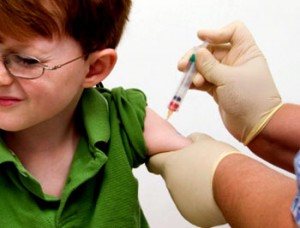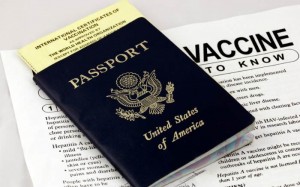When preparing for a long trip abroad, it’s always wise to check your record of immunizations and research what shots are recommended to have before visiting a particular country. However, it’s also good to take the information with a grain of salt—medical associations tend to cover themselves by recommending you get more vaccinations than might really be necessary. So what’s useful, and what’s superfluous?
 The only vaccination that is formally required of anyone by international health standards is for yellow fever if you plan to travel to certain areas in sub-Saharan Africa and South America. Beyond that, everything else is just recommended. You’re likely to already have many of the routine ones leftover from childhood and adolescence, or in annual format like flu shots. The conditions that most adults have already received vaccinations for include tetanus/diphtheria/pertussis (Tdap), HPV (for gents too!), meningococcus, measles/mumps/rubella (MMR), varicella, polio, and various strains of hepatitis. You may have more than these, or be missing some—go over your records with a doctor to see if you’re up to date.
The only vaccination that is formally required of anyone by international health standards is for yellow fever if you plan to travel to certain areas in sub-Saharan Africa and South America. Beyond that, everything else is just recommended. You’re likely to already have many of the routine ones leftover from childhood and adolescence, or in annual format like flu shots. The conditions that most adults have already received vaccinations for include tetanus/diphtheria/pertussis (Tdap), HPV (for gents too!), meningococcus, measles/mumps/rubella (MMR), varicella, polio, and various strains of hepatitis. You may have more than these, or be missing some—go over your records with a doctor to see if you’re up to date.
 Vaccines specific for international travel depend on your destination. Typhoid, rabies, and Japanese encephalitis immunizations are common recommendations. Typhoid is a bacterial infection that results from food and water being contaminated by the fecal matter of an infected person, which is, unfortunately, a lot easier to happen than you’d like to think (take a second and think about how many people prepare your food if you’re traveling in Africa or South Asia, and how many of them have never used toilet paper in their lives). The greater risk you have for coming into contact with contaminated food, the stronger the recommendation to get vaccinated. In other words, if you’re going on a 5 Star Caribbean cruise you’re going to be fine, but if you’re backpacking in India you’d be well-advised to get this one.
Vaccines specific for international travel depend on your destination. Typhoid, rabies, and Japanese encephalitis immunizations are common recommendations. Typhoid is a bacterial infection that results from food and water being contaminated by the fecal matter of an infected person, which is, unfortunately, a lot easier to happen than you’d like to think (take a second and think about how many people prepare your food if you’re traveling in Africa or South Asia, and how many of them have never used toilet paper in their lives). The greater risk you have for coming into contact with contaminated food, the stronger the recommendation to get vaccinated. In other words, if you’re going on a 5 Star Caribbean cruise you’re going to be fine, but if you’re backpacking in India you’d be well-advised to get this one.
On the other hand, rabies vaccinations are only recommended for those that are likely to have significant, direct contact with potentially infected animals. If you are going to be working in a veterinary clinic, on a farm, or doing a lot of spelunking, you should consider getting the vaccine, but otherwise it’s probably excessive. Japanese encephalitis is another selective one—it is only a risk in South, Southeast, and East Asia (interestingly, the rates of cases in Japan are just as rare as in other areas of the world), and even then is not terribly common. Being mosquito-borne, transmission risks are low except when mosquitos are at their most prevalent (generally the wet season and beginning of the dry season). Outbreaks come and go, so do some research before deciding if it’s necessary or not.
 The result of all of this? You’re probably in good shape, assuming you have had your routine vaccinations. All the same, check with your doctor before leaving your home country, preferably a month or two before departure. Immunizations can take several weeks to become effective, and the side effects when you get the shots can be unpleasant. Still, this minor inconvenience is far better than contracting polio on your West Africa trip. Do your research, and take care of yourself!
The result of all of this? You’re probably in good shape, assuming you have had your routine vaccinations. All the same, check with your doctor before leaving your home country, preferably a month or two before departure. Immunizations can take several weeks to become effective, and the side effects when you get the shots can be unpleasant. Still, this minor inconvenience is far better than contracting polio on your West Africa trip. Do your research, and take care of yourself!







